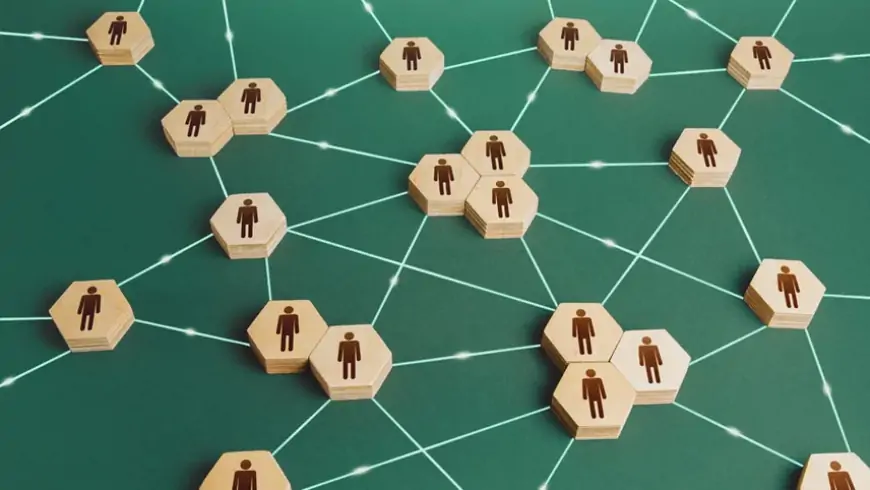What is Decentralized Autonomous Organization? An ultimate guide
Discover why The DAO disbanded in 2016 after a significant hack, leading to debates among investors and a pivotal Ethereum hard fork.

Understanding Decentralized Autonomous Organization
A decentralized autonomous organization (DAO) is a novel organizational structure devoid of a central authority, where members collectively pursue the entity's best interests. This model, championed by blockchain advocates, employs a decentralized decision-making process, emphasizing grassroots management. DAOs exemplify a paradigm shift in organizational governance, leveraging blockchain technology to foster transparency and collective decision-making among participants.
Purpose of Decentralized Autonomous Organizations (DAOs)
Decentralized autonomous organizations (DAOs) are inspired by the decentralized nature of digital currencies, which are not governed by a single institution but by a distributed network of computers and nodes.
Invented in 2016 by developers, DAOs aim to oversee and manage entities akin to corporations but without central authority. Instead, leadership and governance are decentralized, with participants collectively making decisions. This innovative approach leverages blockchain technology to enhance transparency and efficiency in organizational governance.
How DAOs operate
Decentralized Autonomous Organizations (DAOs) rely on smart contracts for decision-making, automatically executing decisions once voting thresholds are met. For instance, in a cryptocurrency governed by a DAO, members can propose changes to tokenomics, such as altering supply or issuing rewards. Votes are broadcasted to all eligible members who then vote, with smart contracts tallying results. The outcome determines blockchain direction, although some changes may require blockchain coding adjustments. Voting power correlates with token holdings, incentivizing financially invested members to act in the DAO's best interest. DAOs deter bad actors by penalizing them, safeguarding the DAO's value. DAOs often maintain treasuries holding tokens for fiat exchange, with members voting on fund utilization, such as acquiring rare NFTs.
Advantages of DAOs
Decentralized Autonomous Organizations (DAOs) offer several compelling reasons for entities or collectives to adopt this management structure:
- Decentralization: Decisions affecting the organization are made collectively rather than by a central authority like a CEO or Board of Directors, distributing authority across a larger group of participants.
- Participation: Individuals feel more empowered and engaged when they have direct voting rights on all matters. DAOs encourage token holders to participate actively by voting, burning tokens, or utilizing them in ways they deem beneficial for the organization.
- Transparency: Voting in DAOs occurs via blockchain, making decisions publicly visible. This transparency incentivizes members to act in the best interest of the community, enhancing accountability and trust.
- Community: DAOs facilitate global collaboration, allowing token holders from diverse backgrounds to contribute to a shared vision without geographical limitations, fostering a strong sense of community and inclusivity.
Challenges of DAOs
Decentralized Autonomous Organizations (DAOs) face several significant challenges that can arise from improper setup or maintenance:
- Speed: Unlike traditional companies where a CEO can swiftly make decisions, DAOs require every member to vote, potentially lengthening decision-making processes due to global time zones and differing priorities.
- Education: DAOs must educate members about pending activities, which is more complex than a CEO-led decision-making process. Members may have varied educational backgrounds and understanding levels, which can hinder efficient decision-making.
- Inefficiency: DAOs are susceptible to inefficiencies because of the time required for education, communication of initiatives, and coordination among a large number of participants. This can lead to prolonged discussions and delays in implementing changes.
- Security: Ensuring the security of digital platforms and blockchain resources is critical for DAOs. Without robust technical expertise and security measures, DAOs are vulnerable to exploitation, compromising voting integrity and trust among users.
These challenges underscore the complexity of maintaining effective governance and operational efficiency in DAOs, requiring careful management and technological safeguards to mitigate risks effectively.
Reasons for disbanding of the DAO
By May 2016, The DAO had accumulated a significant amount of ether tokens, representing up to 14% of the total circulating supply, as reported by The Economist. However, around the same time, a paper highlighted potential security vulnerabilities, advising against voting on new investment projects until these issues were resolved.
In June 2016, hackers exploited these vulnerabilities, accessing 3.6 million ETH valued at approximately $50 million at the time. This incident sparked heated debates among DAO investors, with some proposing solutions to address the hack and others advocating for the DAO's dissolution.
The fallout from this attack played a pivotal role in the Ethereum community's decision to initiate a hard fork, a contentious process resulting in a split that aimed to recover the stolen funds and prevent future vulnerabilities.












































